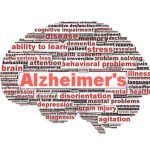
Even if researchers were to find a groundbreaking new treatment for Alzheimer’s disease, millions of people might not benefit from it, new research reveals. That’s because the U.S. health care system doesn’t have the ability to quickly implement a newly approved treatment on a widespread scale, according to a report from the RAND Corporation. For instance, there aren’t enough doctors to diagnose all the people with early signs of dementia who would be good candidates for such a treatment, the researchers explained. In addition, scanners used to detect the disease are in short supply, and there aren’t enough treatment centers that could administer the therapy to patients. An estimated 5.5 million Americans are currently living with Alzheimer’s disease. By 2040, that number is expected to jump to 11.6 million, according to the study authors. “While significant effort is being put into developing treatments to slow or block the progression of Alzheimer’s dementia, little work has been done to get the medical system ready for such an advancement,” said study lead author Jodi Liu. She is a policy researcher at RAND, a nonprofit research group. “While there is no certainty an Alzheimer’s therapy will be approved soon, our work suggests that health care leaders should begin thinking about how to respond to such a breakthrough,” Liu explained in a RAND news release. At least 10 therapies… read on >


















